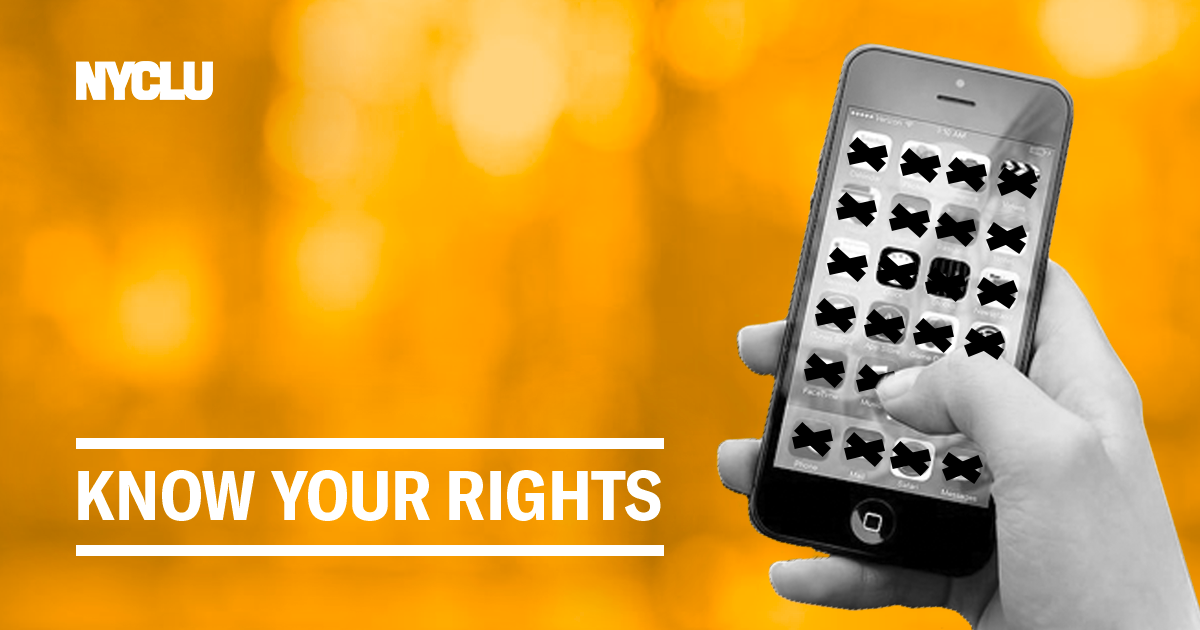Know Your Rights: Students in Higher Education & the First Amendment
As bold as the spirit of New York, we are the NYCLU.
Donate
© 2024 New York
Civil Liberties Union
Civil Liberties Union

Our cell phones can store our most private information — from our emails, texts and photos to our bank account, job and health records. They can track where we go and who we meet. Unfortunately, this makes our cell phones a target for unwanted spying, whether by the government or private parties seeking to abuse and misuse the information. Here are some tips to better protect all the information stored on your phone.
This KYR is not a replacement for legal advice.
